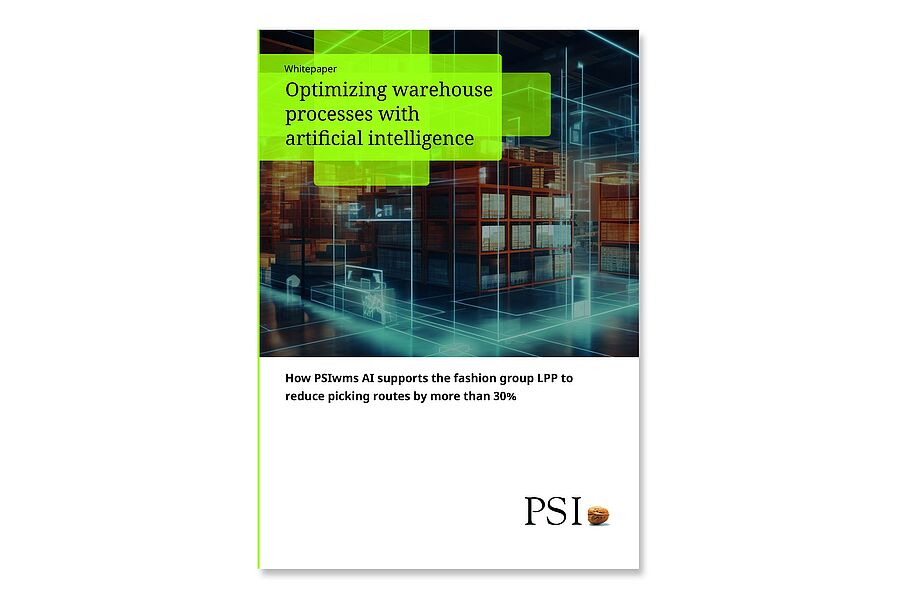New white paper shows the potential of Artificial Intelligence in logistics
Berlin, April 14, 2025 – Artificial intelligence (AI) will play a key role in shaping the warehouse of the future. In its new white paper “Optimizing warehouse processes with Artificial Intelligence” PSI explains the potential that AI already offers in intralogistics today. Using a pilot project, the paper shows how companies can ensure decisive competitive advantages by using AI.

In the logistics industry, the challenge is to meet ever-increasing demands, such as shorter delivery times and maximum transparency, on a daily basis. At the same time, companies have to overcome numerous challenges such as scarce resources, rising costs and crisis-prone global supply chains. In this context, innovative technologies can help to make processes more efficient and future-proof. The use of Artificial Intelligence is playing an increasingly crucial role in this.
When integrated directly into the warehouse management system, AI enables more in-depth analysis and optimization of logistics processes. To do this, changes in the warehouse are automatically mapped in real time in a digital twin. PSI is already successfully using the AI-based software solution to comprehensively improve logistics processes. This is illustrated by the fact that the AI platform PSIwms AI received the Best Product Award at LogiMAT 2025. The white paper “Optimizing warehouse processes with Artificial Intelligence” shows which results are already possible in practice with the use of AI.
The white paper can be downloaded free of charge at the following link.
The PSI Group develops software products for optimizing the flow of energy and materials for utilities and industry. As an independent software producer with more than 2,300 employees, PSI has been a technology leader since 1969 for process control systems that ensure sustainable energy supply, production and logistics by combining AI methods with industrially proven optimization methods. The innovative industry products can be operated on-premises or in the cloud.



